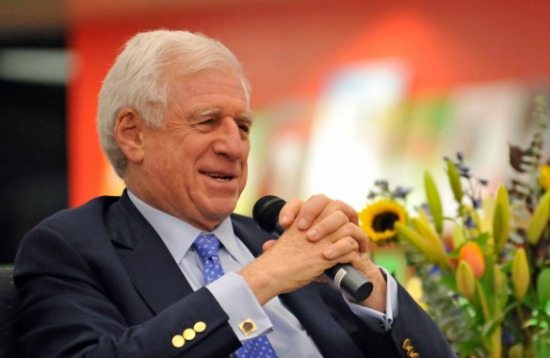Episcopal priest and former Republican Senator John Danforth says that the faithful can change politics for the better.
Today, the legislative process does not work, because members of Congress do not work things out. And as the partisan audience in Iowa demonstrated by their cheering, their supporters don’t want them to work things out. There’s no way of knowing whether all of the eight who raised their hands in Iowa actually believed that a ten-for-one budget deal would be bad policy, or whether they were simply playing to the crowd. Whichever it was, times have changed. It’s not just that politicians no longer seek after compromise, but that partisans no longer tolerate it.
Politics is about inclusion, and it has been since the writing of our Constitution. Our system was designed to hold together in one nation people with very different interests and ideas. Holding together competing interests requires compromise, which is just what our complex legislative process encourages.
Religion can work either for or against compromise. Most often, especially in dogmatic forms, it has opposed compromise. To believe that one’s political positions are the same as God’s and that those who disagree are God’s enemies is to make negotiation impossible. Religiously fraught topics such as abortion and gay marriage are called “wedge” issues because they are intended to split us apart. A political process that values compromise allows both sides to express themselves respectfully. Because religion often insists on hardened positions, there is good reason for keeping it out of politics. Still, the meaning of religion is to bind us together and the ministry of the church is reconciliation. This means that religion’s message to politics should be to respect differences, which often requires compromise.

